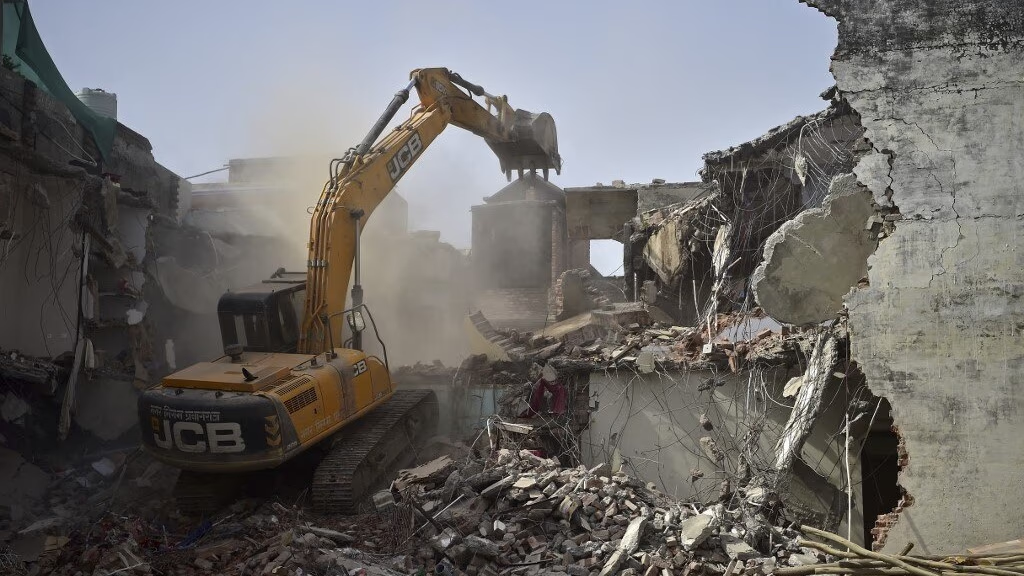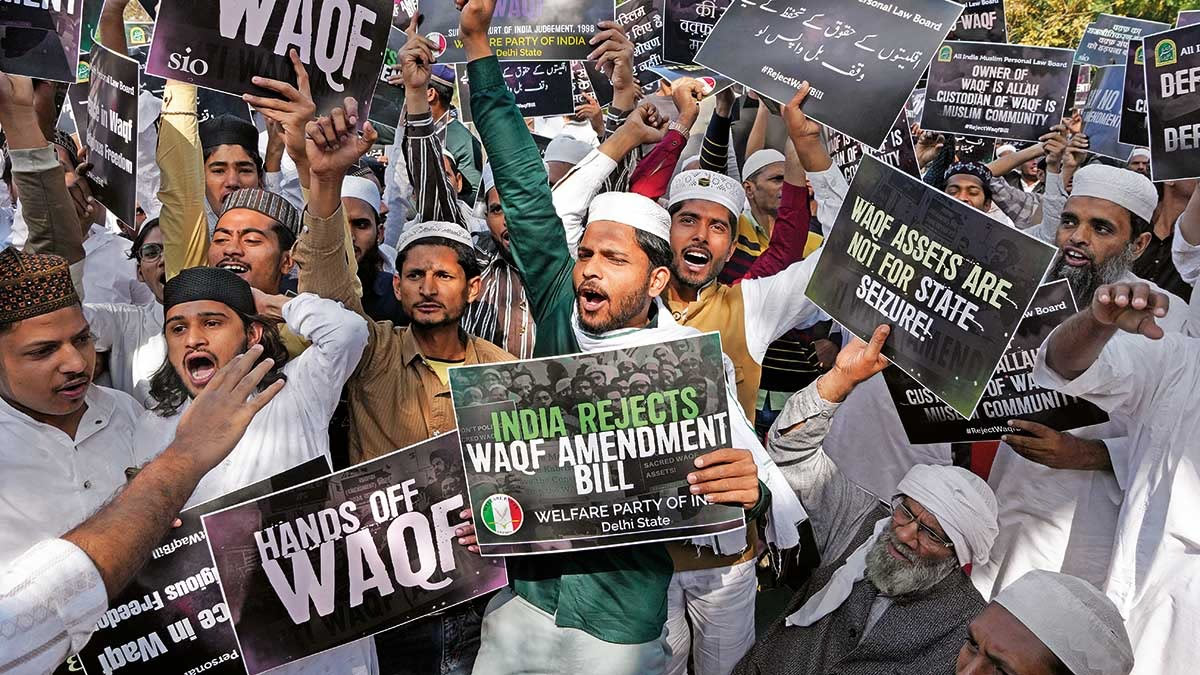In recent months, bulldozer actions have symbolized a crackdown on criminals in India. This method, prevalently used as judicial punishment, was declared unconstitutional by the Supreme Court in November 2024. Nonetheless, certain states persist with this destructive approach.
Just last week in Beawar, Rajasthan, numerous demolitions were initiated in cases involving alleged sexual harassment of minors and forced interactions, labeled as 'Love Jihad' by local law enforcement and Hindu nationalist organizations. Prior to the Rajasthan High Court's intervention, parts of a suspect's house were razed, following demands from Hindu groups.
In the same week, the Municipal Corporation in Malvan, Maharashtra, demolished a Muslim man's scrapyard, based on accusations from a VHP activist that the owner's son chanted pro-Pakistani slogans following a cricket match. Additionally, another shop belonging to the boy's uncle was demolished along with a vehicle the family used for their scrap business.
On Monday, government agencies initiated actions in two Maharashtra cities. The first occurred in Mumbai's Khar at Habitat Studio, where comedian Kunal Kamra's show video went viral with critical remarks about Maharashtra's Deputy CM Eknath Shinde.
The second event unfolded in Nagpur, where a two-story building owned by Faheem Khan, accused of inciting local violence, faced demolition for alleged construction irregularities, according to Nagpur Municipal Corporation.
Read also: High Court Restrains Bulldozer Action on Nagpur Violence Accusations, Hearing Next Month
The Bombay High Court's Nagpur bench has intervened, halting demolitions for petitioners such as Faheem Khan and Yusuf Sheikh, expressing concerns over the lack of hearings before such significant actions. Faheem Khan's property was demolished just before the court's protective order.
The court has mandated government and municipal officials to submit replies, with the next hearing slated for April 15.
Bulldozer Actions in Ahmedabad
Ahmedabad police have compiled a list of 1481 miscreants, from bootleggers to gamblers. Police Commissioner GS Malik warned 353 criminals during a Crime Branch meeting to desist from crime or face severe consequences.
The DGP of Gujarat directed statewide creation of criminal lists within 100 hours, initiating comprehensive operations across Ahmedabad, where police razed illegal properties of offenders. Malik outlined this list includes 303 bootleggers, 21 gamblers, 687 offenders in bodily harm cases, 424 property crime offenders, and 46 NDPS offenders. Numerous individuals have faced preventive detention and district exclusion under police powers.
Read also: Nagpur's Bulldozer, Mumbai's Hammer Actions! Speedy Actions in Maharashtra's Two Cities
Collaborating with the municipal body, Ahmedabad police are actively dismantling illegal properties. The police commissioner noted that assets identified for demolition are being shared with the corporation. Bulldozer actions are ongoing.
Farmers Face Bulldozer Actions in Punjab
The Punjab government adopted a stringent approach against farmers on March 19. Police cleared protest sites at Shambu-Khanouri border with bulldozers following over a year's demonstrations, coinciding with recent government-farmer union talks in Chandigarh, prompting escalated farmer dissent.
Bulldozer Operations in UP
Uttar Pradesh continues bulldozer operations to clear unauthorized colonies and encroachments. The Development Authority identified 17 colonies for action, sparking criticism from SP leader Akhilesh Yadav, who shared a video showing bulldozers targeting a colony, invoking public reaction.
Read also: Bulldozer Visits Yusuf Sheikh’s Home Following Faheem Khan’s Demolition Amid Nagpur Violence Sweeps
In November 2024, the Supreme Court addressed bulldozer actions, deeming them unlawful. It asserted that demolitions are not justifiable purely on accused or convicted statuses. Guidelines emphasized the necessity of rule of law, free of bias, requiring compensation for wrongful demolitions.
The court prescribed stringent guidelines for such demolitions to ensure compliance with legal standards.
Demolition not permissible solely on accusatory grounds.
Assess case solvability.
Issuance of prior notice before bulldozer action.
Provision of personal hearings.
Administrative explanation for necessity and process of demolition required.
Sanctions for guideline breaches applicable.
The court's guidance clarifies circumstances where bulldozer actions may not apply and articulates an appropriate procedural requirement for legal demolitions.




